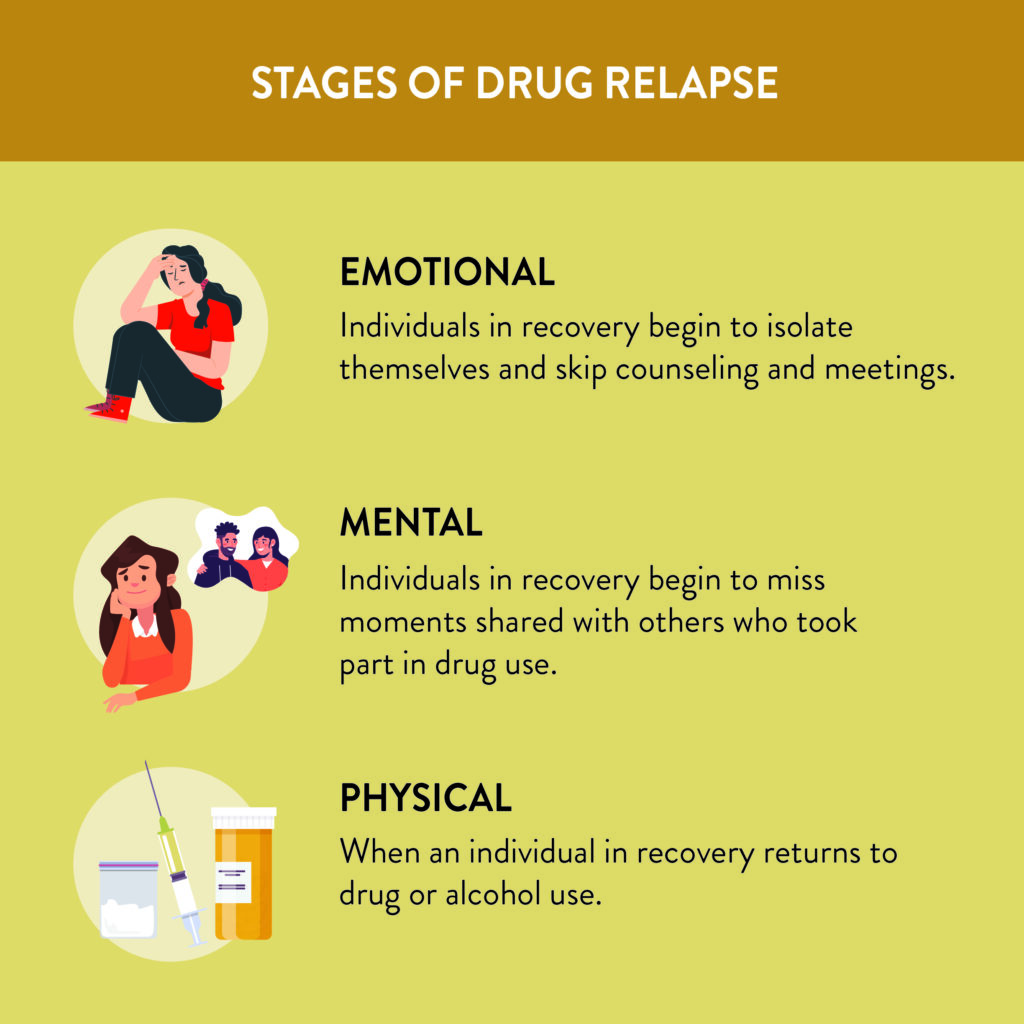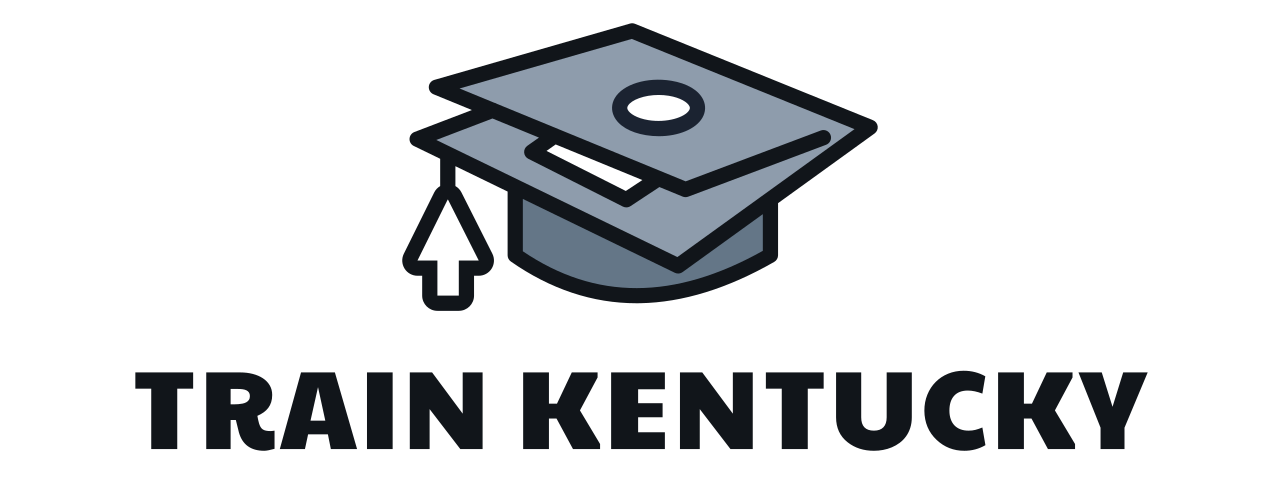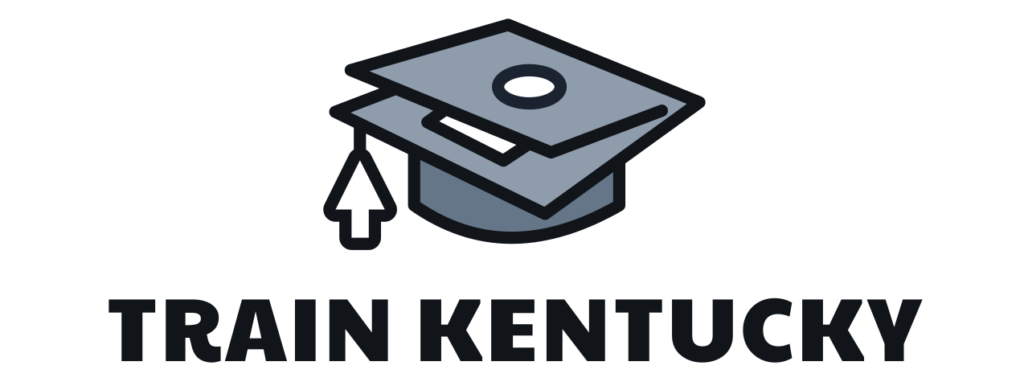Relapse Prevention: Understanding the 3 Stages of Addiction Relapse and Creating a Recovery Plan
Free Train Kentucky Relapse Prevention Worksheet: Download here and begin helping your client develop the perfect relapse prevention plan.
Relapse is a typical and expected part of recovery for many people overcoming drug addiction. It can happen when a person makes mistakes, feels terrible, and returns to drug use. But relapse prevention planning can help individuals learn how to avoid relapses and stay on the path to recovery.
Understanding Relapse Through Statistics
Relapse, while not a desired outcome, is relatively common during the recovery journey. Understanding this aspect is crucial to provide context and normalize relapse as part of the process, not as a failure. Let’s examine some revealing statistics:
- According to the National Institute on Drug Abuse (NIDA), the relapse rate for substance use disorders is estimated to be between 40% and 60%. This is similar to rates for other chronic illnesses such as hypertension and asthma.
- Relapse rates can vary significantly depending on the type of substance used. For instance, the National Center for Biotechnology Information has reported that relapse rates for those addicted to nicotine are as high as 80-90%.
- Another article by the National Center for Biotechnology Information suggests that over 85% of individuals relapse and return to drug use within a year of treatment.
These statistics underscore the importance of comprehensive relapse prevention planning. Remembering that a relapse is not a sign of failure but rather an indication that the treatment plan needs to be adjusted or intensified.
The 4 Key Concepts in Relapse Prevention
There are four main ideas in relapse prevention:
- Relapse is a gradual process that occurs in stages.
- Recovery is a process of personal growth that occurs in stages.
- Relapse prevention involves changes in thinking and the development of coping strategies.
- Most relapses can be explained in terms of a few basic rules.

Stages of Relapse
Relapse often happens gradually and in stages. It begins weeks and sometimes months before an individual returns to the problem behavior, such as using or drinking. Understanding these stages and warning signs is paramount to relapse prevention planning.
Emotional Stage
During an emotional relapse, individuals are not thinking about using. However, their emotions and behaviors are setting them up for a relapse down the road. Signs of an emotional relapse can include bottling up emotions, isolating, not going to meetings, poor eating and sleeping habits, and focusing on others’ behaviors rather than their own. The common thread that binds these signs together is poor self-care.
Mental Stage
A war of sorts is raging in the individual’s mind in the mental relapse stage. Signs of mental relapse include cravings for drugs or alcohol, thinking about people, places, and things associated with past use, minimizing consequences of past use, bargaining or making reservations, lying, and planning a relapse. Bargaining or making reservations are of particular concern and should be monitored closely. Remaining vigilant for these thoughts and addressing them appropriately and timely is essential to relapse prevention.
Physical Stage
This stage is defined simply as a return to active use. Most physical relapses are relapses of opportunity. They occur when the person has a window where they feel they will not get caught. Relapse prevention planning involves rehearsing for these situations, developing healthy exit strategies, and practicing saying no.
Stages of Recovery
Recovery is a process of personal growth in which each stage has its risks of relapse and developmental tasks required to reach the next stage. There are three stages of recovery to consider.
Abstinence Stage
This stage begins immediately when an individual stops using. The primary focus of this stage is dealing with cravings and not using them. Some of the tasks or developmental milestones that make up this recovery stage are accepting that you have an addiction, practicing honesty in life, developing coping skills for dealing with cravings, becoming active in self-help groups, and understanding the stages of relapse.
Example: David has decided to quit using drugs and is experiencing intense cravings. He attends support group meetings regularly and talks to his sponsor to address these cravings. He also practices honesty daily, such as being truthful with his friends and family about his addiction and recovery. By focusing on coping skills for dealing with cravings and building a support system, David can navigate the abstinence stage successfully.
Repair Stage
In this second stage of recovery, the primary task is to repair the damage created during active addiction. During this stage, it is not unusual for an individual to begin feeling down as they must confront the damage caused by addiction to their relationships, employment, finances, and self-esteem.
Example: Lisa has been sober for six months but is feeling down as she confronts the damage caused by her addiction to her relationships, employment, and finances. She repairs these relationships by reaching out to her loved ones, finding new employment opportunities, and creating a budget to manage her finances. By focusing on repairing the damage caused by her addiction, Lisa can move forward in her recovery.
Growth Stage
This stage is about developing skills that an individual may have never learned and may have predisposed them to addiction. Essentially, this stage is concerned with moving forward.
Example: Mark has been sober for one year and has worked on repairing his relationships and improving his life. He now wants to focus on personal growth and development. He starts by setting small goals like reading a new book or trying a new hobby. He also begins to explore his interests and passions, such as traveling or volunteering. Mark can continue his journey toward a healthier and happier life by focusing on personal growth.
Changes in Thinking and the Development of Healthy Coping Skills
Relapse prevention involves changes in thinking and the development of coping strategies. Fear, redefining fun, and learning from setbacks are important aspects of this process.
Fear:
Fear is a typical negative thinking pattern in addiction. These patterns of fearful thoughts can include the fear of not measuring up, being judged, feeling like a fraud, not knowing how to live without drugs or alcohol, the fear of success, and the fear of failure. Individuals can reduce the likelihood of relapse by identifying these patterns and learning how to manage them.
Example: Chris fears being judged by others and feels he doesn’t belong in his support group. He learns to manage this fear by talking to his sponsor and practicing self-compassion.
Redefining Fun:
In early recovery, many individuals struggle with having fun without drugs or alcohol. However, part of relapse prevention planning involves finding new, healthy ways to experience enjoyment. This can include hobbies, exercise, spending time with supportive friends and family, and trying new things.
Example: Sarah used to enjoy going out and drinking with her friends. Now that she’s sober, she feels like she can’t have fun without alcohol. She tries new activities, such as hiking and painting, and enjoys them just as much.
Learning from Setbacks:
It’s important to remember that setbacks are a natural part of the recovery process. When a setback occurs, it’s crucial to reflect on what led up to it, what could have been done differently, and how to avoid similar situations in the future. By learning from setbacks, individuals can continue to move forward in their recovery journey.
Example: Jack has been sober for six months but relapses. He reflects on what led to the relapse and realizes that he had stopped attending meetings and wasn’t taking care of himself. He learns from this setback and makes changes to prevent future relapses.
Additional Healthy Coping Skills
Mindfulness practices, such as meditation or deep breathing exercises; physical exercise, such as yoga, running, or strength training; relaxation techniques, such as taking a warm bath, listening to soothing music, or getting a massage; engaging in hobbies or creative activities, such as painting, writing, or playing an instrument, seeking support from loved ones, such as talking to a trusted friend or family member, attending support groups, such as 12-step programs or group therapy, seeking professional help, such as talking to a therapist or counselor, setting and achieving small goals, such as finishing a book or cleaning a room, practicing self-care, such as getting enough sleep, eating healthy, and taking breaks when needed, and finding healthy ways to manage stress, such as taking a walk, practicing mindfulness, or talking to a counselor.
Basic Rules for Relapse Prevention
While every individual’s journey to recovery is unique, some basic rules can help prevent relapse. These include avoiding triggers, practicing self-care, seeking support from others, attending regular therapy or counseling sessions, and maintaining healthy relationships.
Conclusion
In conclusion, relapse prevention planning is essential to recovery for individuals struggling with drug addiction. By understanding the stages of relapse and recovery, developing healthy coping strategies, and following basic rules for relapse prevention, individuals can successfully navigate the challenges of addiction and achieve long-term recovery. It’s important to remember that recovery is a process, and setbacks may occur. Still, individuals can overcome them with determination and support and continue their journey toward a healthier and happier life.
Looking to make a difference in your community?
Our certification courses in Adult Peer Support and Targeted Case Management are geared toward equipping you with the crucial skills and knowledge to enact real change. By stepping into the role of a helper, you can offer the essential support individuals in recovery need, guiding them through their hurdles and possibly altering the course of their lives for the better. Start your transformative journey with us at Train Kentucky, and let’s work together to create a positive ripple effect. Explore our diverse range of courses by clicking here.





